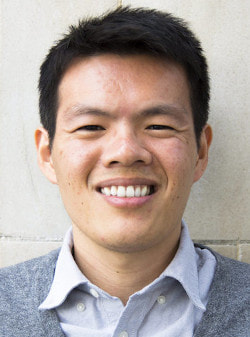He has a longstanding interest in three research areas: (1) Positive youth development: studying the development of values and civic engagement across adolescence and young adulthood; (2) School and family-based interventions: improving the design, delivery, and evaluation of interventions directed towards adolescents; and (3) Inequality: addressing sociocultural processes within school contexts for low-income immigrant and U.S-born Latino, Asian American, and African American youth. As a doctoral student, Lin specialized in Educational Policy and Social Context.
Simpkins is a developmental psychologist, studying child and adolescent development. She researches how families, friendships, and social position factors (such as ethnicity and culture) shape adolescents’ organized after-school activities and motivation. She is currently working on research focused on the positive outcomes of youth’s participation in activities as well as the predictors and correlates of high school students’ STEM motivational beliefs. She is co-PI on grants from the John Templeton Foundation and the Charles Stewart Mott Foundation that study how organized after-school activities support positive development from childhood through young adulthood. Simpkins directs the Center for After School and Summer Excellence (CASE) and Project REACH and co-directs the After School Activities Project. Abstract The decision to enroll in organized after-school activities involves a gradual negotiation of adolescents’ independence between family members who can hold contrasting views on adolescents’ autonomy. Furthermore, less is known about the culturally grounded nature of this decision-making process generally observed among the Latinx community, especially those from immigrant backgrounds, where adolescents may serve as the cultural brokers to help their families navigate through certain cultural barriers outside the home. In this study, we analyzed semi-structured interviews from a diverse group of 34 Mexican-origin parent-adolescent dyads living in a Southwest metropolitan area. Results indicate that decision making on organized activities can occur across multiple distinct pathways that reflect unilateral and mutual decision making based on the parents’ and adolescents’ level of involvement. The adolescents’ strong role as cultural brokers not only reflects a critical role of helping their parents navigate through the cultural barriers of the after-school world but can also empower them to have a greater voice within a context of positively developing a more equal basis of decision making in the parent-child dynamic. Findings from this study highlight the rich diversity among Mexican-origin families and can help further strengthen organized activities in being responsive to the diverse cultural practices of families. Comments are closed.
|
Resources for:
|
|



